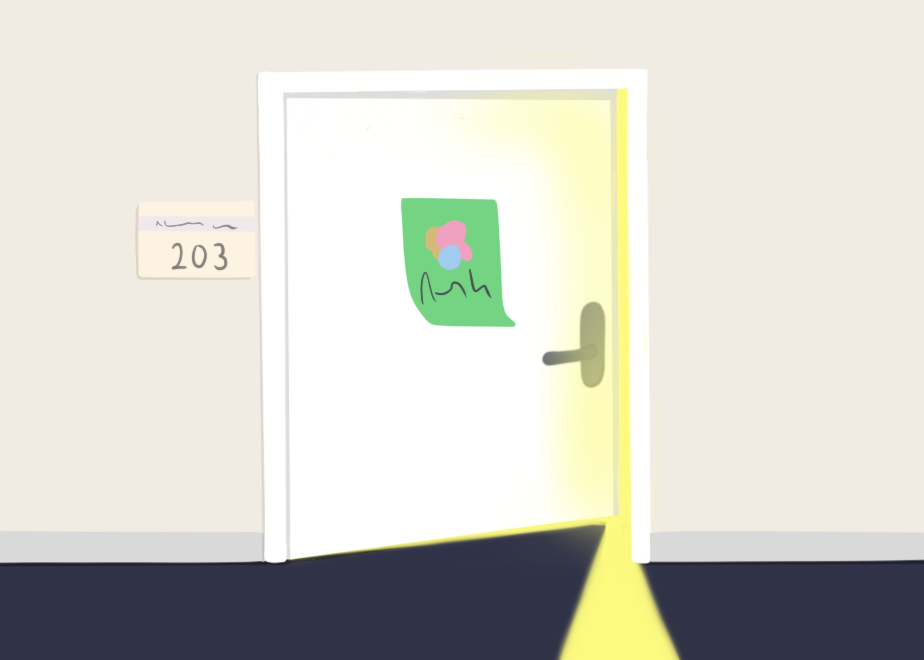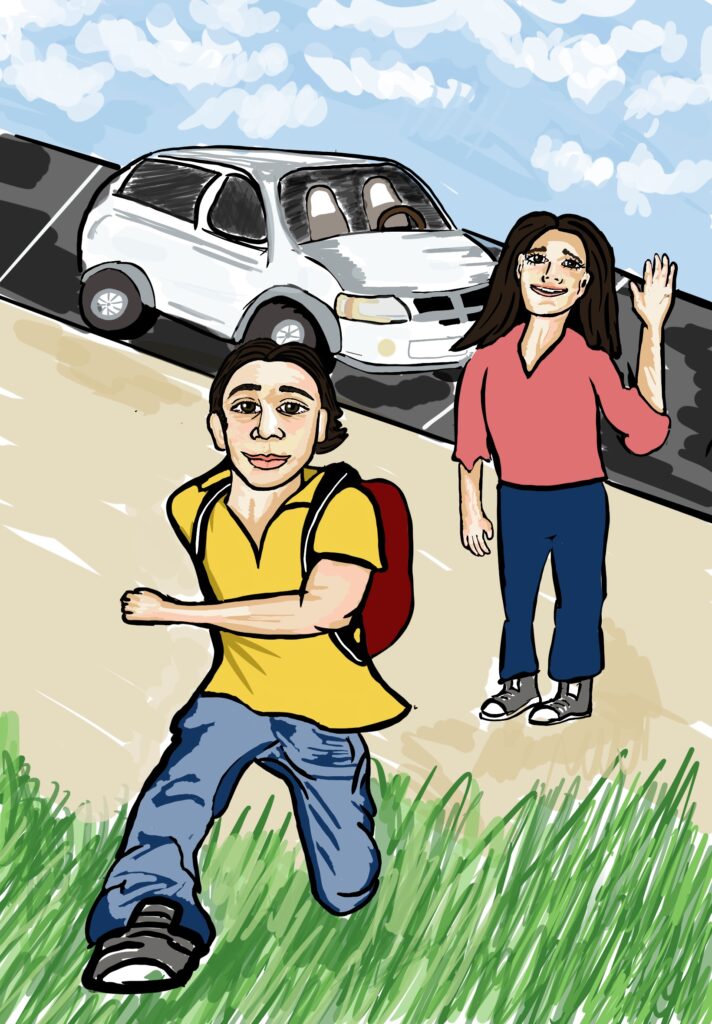
Graphic by Sesame Gaetsaloe/The Choate News
Visitation has long been a hot topic of discussion on the Choate campus, with many students yearning for a more relaxed policy. The current rules prohibit students of the opposite sex to close the door when in a dorm room together, enter dorms of the opposite gender during the school day, or enter them before noon on weekends. While many students criticize this policy as frustrating and inconvenient, it also points toward a much larger issue on campus: Choate’s inconsistent and ineffective attitude towards sex and intimacy.
As it currently stands, visitation rules require that when freshmen, sophomores, or juniors of the opposite sex are in a dorm room together, they must keep the door propped open with either a recycling bin or a trash can. Sixth formers must do so with only a shoe. In all cases, the Student Handbook states that an overhead light must remain on and that visiting students must check in and out with a house adviser.
Notably, the current visitation policy does not take students’ sexuality into account. For example, a male who identifies as gay would still need to get visitation to enter a female friend’s room but wouldn’t have to if visiting another male. Although it would be discriminatory to ostracize students from dorms of their gender based on sexuality, the visitation policy doesn’t seem to have an appropriate policy for students who identify as LGBTQ+.
Furthermore, relationships, intimacy, and sex are natural and healthy parts of growing up. In the Student Handbook, Choate states, “Healthy romantic attachments do develop and the School affirms students as they search for appropriate ways to express affection towards one another while demonstrating respect for other members of our residential community.” However, the Student Handbook contradicts this statement by also saying that “the School discourages sexual intimacy on campus.” While the administration obviously has the right to be concerned about sexually transmitted infections (STIs), pregnancy, and sexual assault and misconduct, Choate’s policy sends mixed messages about student intimacy by forcing the exact relationships that the School claims to “affirm” to be pursued through deception.
With no hope for complete privacy through visitation, students are motivated to circumvent the rules. They find other methods to be intimate including sneaking into dorms, which, ultimately, puts them at a far greater risk. By forcing students to break rules in order to be sexually intimate, the School casts sex as taboo, reducing discussion of sexual intimacy to whispers.
Fearing condemnation, students are far less likely to seek advice from adults on practicing safe sex, potentially leading to unhealthy sex habits or sexual misconduct. By enforcing stringent visitation rules, Choate creates the issues that it is trying to prevent. Instead, the School should focus on creating a policy that is sex-positive, while still upholding its responsibility to keep students healthy and safe.
Having a visitor’s presence acknowledged by a house adviser should be enough to grant closed-door visitation. That way, advisers would be able to facilitate a safe environment and simultaneously provide students with privacy. Moreover, while Choate’s Wellness and Peer Educator Programs try to facilitate conversations in dorms, they should adopt a more sex-positive mindset when organizing these programs — preaching healthy choices and empowering consent, rather than pushing students not to engage in sexual relationships at all.
By better educating students on safe sex and consent, students will be more likely to make healthy sexual decisions and prevent sexual assault. Furthermore, the establishment of a more trusting, sex-positive visitation policy and environment at Choate overall would create a safer setting for intimacy among LGBTQ+ students, despite the fact that the visitation policy only addresses straight couples. Although some parents may be uncomfortable with their children being intimate on campus, it’s much safer for the School to create a safe and trusting environment for students’ sexuality, one in which students are educated about sex. This way, if students choose to have sex, they will have the knowledge and privacy to do so in a healthy, consensual way.




